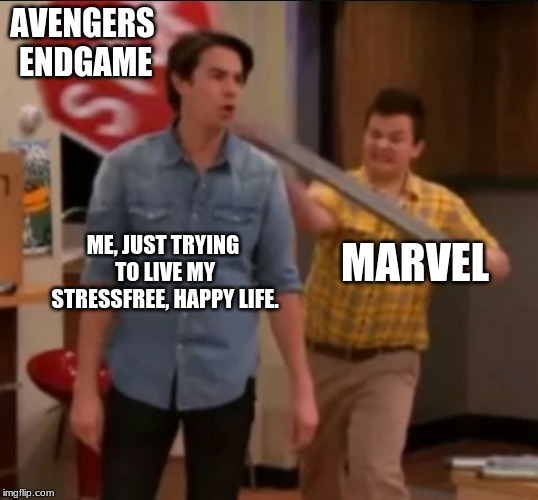Text
When you see the new press tour photos and then you remember this is the last press tour with all the OG 6
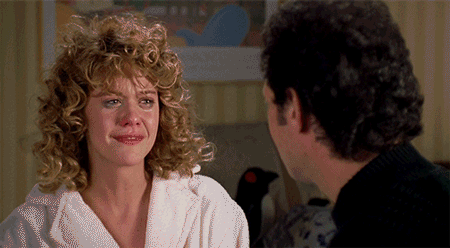
587 notes
·
View notes
Photo
Loved it!
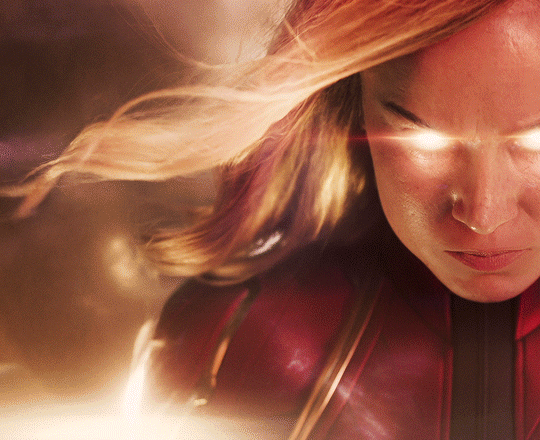
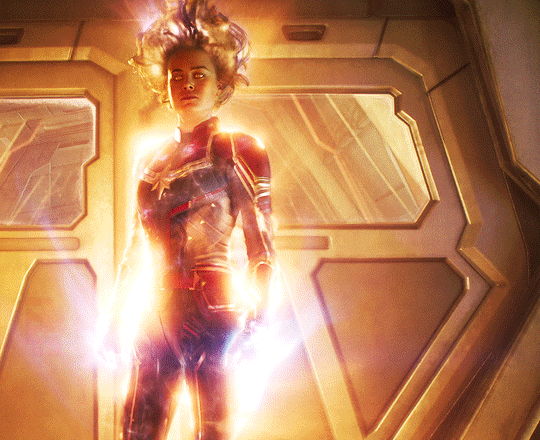
I have nothing to prove to you.
Captain Marvel (2019)
9K notes
·
View notes
Link
#venezuela#free venezuela#freedom#juan guaidó#nicolas maduro#venezuelan crisis#crisis en venezuela#crisis in venezuela#politics#ask a venezuelan#democracy
26 notes
·
View notes
Photo
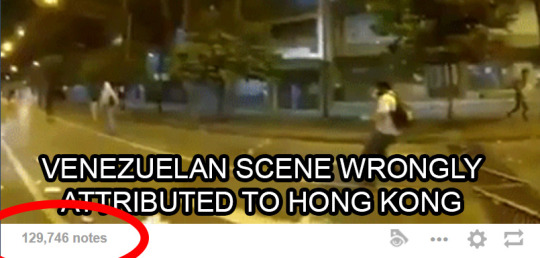
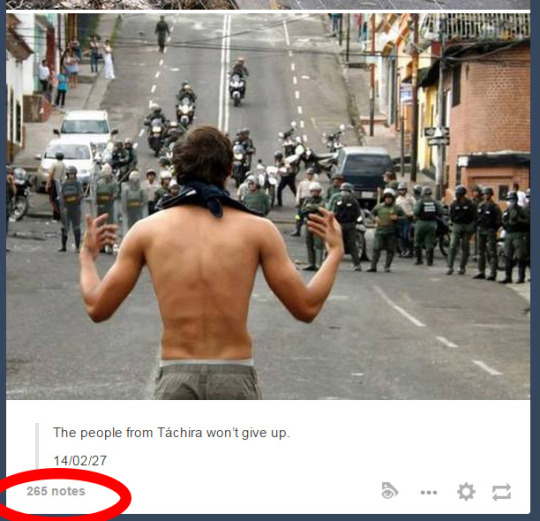
How Tumblr treats Venezuela:
- Post a gif from Venezuela, during the March protests, in October, claim it was from Hong Kong = over 125K notes.
- Actual information that was happening on-the-spot about a whole state being crushed under the boot of repression and an internet blackout? 265 notes to this day.
Just remember this:
People - some people, not all people, but more importantly plenty of people more than those who did things right - ignored us, and our protests and protestors were crushed, and then those people took our protest to advertise another cause.
#venezuela#freedom#free venezuela#crisis en venezuela#crisis in venezuela#venezuelan crisis#human rights#economy#politics#ask a venezuelan
10K notes
·
View notes
Video
youtube
Human Rights Watch has just released a report on the Venezuelan health crisis, prompting the U.N to “lead a full-scale emergency response.”
Read the full report, here.
#venezuela#free venezuela#freedom#human rights watch#humanitarian aid#humanitarian crisis#health crisis#crisis in venezuela#crisis en venezuela#venezuelan crisis#ask a venezuelan
23 notes
·
View notes
Video
youtube
The Venezuela Crisis: State Of Disaster | Full Documentary
#venezuela#free venezuela#freedom#venezuelan crisis#crisis in venezuela#crisis en venezuela#hugo chavez#nicolas maduro#juan guaido#ask a venezuelan#economy#politics
35 notes
·
View notes
Text
30-day load administration plan begins
Nicolas Maduro announced on Sunday that a 30-day load administration regime would be implemented in the country immediately, to balance the electrical condition as well as replacing everything that was damaged in the last power outages.
However, no further details were announced on April 1st, about what it was about -although most expect it to be more power cuts- or how it would be implemented. Meanwhile, several areas in the country have been losing power randomly. Some haven’t gotten their power back for more than 100 hours.
More recently, Jorge Rodríguez announced that the first “load administration” would be put into effect tonight, from 6PM to 8:30 PM. Yet, the areas that would be affected weren’t mentioned, and the warning came less than 30 minutes before the time it was supposed to start.
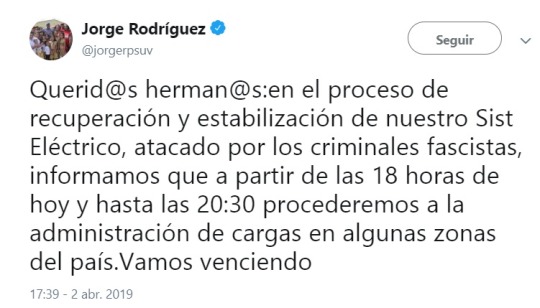
(Translation:
Dear brothers and sisters: in the process of restoring and stabilizing our electric system, attacked by criminal fascists, we inform you that from 18h of today and until 20:30 we’ll proceed with the load administration in certain areas of the country. We’re conquering.)
If you’re in Venezuela, let us know if you lost your power during that period, or if you haven’t gotten your power back at all.
11 notes
·
View notes
Text
30-day load administration plan begins
Nicolas Maduro announced on Sunday that a 30-day load administration regime would be implemented in the country immediately, to balance the electrical condition as well as replacing everything that was damaged in the last power outages.
However, no further details were announced on April 1st, about what it was about -although most expect it to be more power cuts- or how it would be implemented. Meanwhile, several areas in the country have been losing power randomly. Some haven’t gotten their power back for more than 100 hours.
More recently, Jorge Rodríguez announced that the first “load administration” would be put into effect tonight, from 6PM to 8:30 PM. Yet, the areas that would be affected weren’t mentioned, and the warning came less than 30 minutes before the time it was supposed to start.

(Translation:
Dear brothers and sisters: in the process of restoring and stabilizing our electric system, attacked by criminal fascists, we inform you that from 18h of today and until 20:30 we’ll proceed with the load administration in certain areas of the country. We’re conquering.)
If you’re in Venezuela, let us know if you lost your power during that period, or if you haven’t gotten your power back at all.
#venezuela#barcelona#Anzoátegui#crisis en venezuela#Venezuelan crisis#venezuelan news#blackout#power outage#ask a venezuelan
11 notes
·
View notes
Text
30-day load administration plan begins
Nicolas Maduro announced on Sunday that a 30-day load administration regime would be implemented in the country immediately, to balance the electrical condition as well as replacing everything that was damaged in the last power outages.
However, no further details were announced on April 1st, about what it was about -although most expect it to be more power cuts- or how it would be implemented. Meanwhile, several areas in the country have been losing power randomly. Some haven’t gotten their power back for more than 100 hours.
More recently, Jorge Rodríguez announced that the first “load administration” would be put into effect tonight, from 6PM to 8:30 PM. Yet, the areas that would be affected weren’t mentioned, and the warning came less than 30 minutes before the time it was supposed to start.

(Translation:
Dear brothers and sisters: in the process of restoring and stabilizing our electric system, attacked by criminal fascists, we inform you that from 18h of today and until 20:30 we’ll proceed with the load administration in certain areas of the country. We’re conquering.)
If you’re in Venezuela, let us know if you lost your power during that period, or if you haven’t gotten your power back at all.
#venezuela#venezuelan crisis#crisis en venezuela#blackout#power outage#venezuelan blackout#jorge rodriguez#ask a venezuelan
11 notes
·
View notes
Text
Update, March 31
It’s been a tough weekend in Venezuela with multiple power outages. We’ve had 3 in Caracas today, and most people expect yet another one during the evening
Multiple protests have taken place, particularly today. Reports, photos and videos of Colectivos and the FAES attacking protesters have been circulating in social media.
The water supply is non-existent, so many parts of the capital haven’t received a drop of water for an entire week.
The regime has suspended tomorrow’s school activities, and announced that working hours will stop at 2pm in both the public and private sector.
Some parts of the country are having it way worse. Please share your status!
On the other hand, we would like to find contributors - especially Venezuelans in foreign countries - who can keep sharing information when there’s no power or connection here.
Please let us know if you’re interested!
#venezuela#blackout#venezuelan crisis#free venezuela#crisis en venezuela#humanitarian crisis#carabobo#venezuelan blackout#ask a venezuelan
49 notes
·
View notes
Text
Hi, again!
Well, to answer some of your inquiries and comments:
Regarding TeleSur
“ Prodemocratic, anti imperialist sources like TeleSur and official documents are a good start. “
To say that TeleSur, founded by Chavez and sustained by Maduro is a good start to fight misinformation is... odd, to say the least. Most of the media is controlled by Maduro, mainly by harassment and censorship, and TeleSur is actually payed by him, so it’s neither neutral nor reflective of the reality. Only the Maduro-tailored reality.
So no. I can’t support people repeating what TeleSur tells them, because I live in the country and I experience their lies. I experience what it is like to hear something in TeleSur or VTV and know that that isn’t happening.
That’s why -and probably any Venezuelan you’ve ever interacted with has told you something like that- we invite everyone to come to the country and actually be here before saying anything. Because it’s the experience of the country what will tell you all you need to know about what hides behind the regime’s facade.
We live under a regime that knows how to use propaganda and charisma to sell itself. And we must be the voices that dismantle the appeal of both.
However, of course, you’re more than welcome to only get your facts from TeleSur or any source that fights the U.S imperialism -oddly enough, they have no problem with either Cuban nor Russian meddling, but, like someone told me once, I guess that’s “good imperialism”.
But what we’re trying to do in this blog, in particular, is show exactly what TeleSur won’t tell you. It’s up to you to decide if you believe it or not. We can only share our piece.
About Maduro’s massive support
I would be really careful in using this as a justification for defending Maduro. Some of the reasons why:
1- To explain Maduro’s support you also have to explain the language of fear they have used to gain that support. Fear that the middle or rich class will take-over and abandon them or eliminate any of the benefits they’ve received or continue to receive -even if it’s merely scraps-, fear that the U.S will steal everything or turn this into a warzone, etc.
2- Chavez and Maduro sold themselves as the only answer to the poor man’s problems. Think about the motto: “Patria, Socialismo o Muerte”. Country, Socialism or Death. Usually accompanied with “No volverán”. They won’t return. In other words: there can be no political rotation because that would only bring Death, and they would rather fight than allow change.
3- The Maduro regime is an ally of criminals, and has armed them and trained them to serve him while giving them carte blanche to do their bidding, including massive corruption. Many of them won’t leave him because they know what’s coming for them. They’re not interested in a change in the regime, they’re interested in maintaining their status -keep in mind that they’re the ruling class now, too.
4- He has no massive support, as most of the barrios have turned against him. What he has is a lot of armed people on his side, plus those who will support “the process” no matter how inefficient it is. For them, they have to be “rodilla en tierra” (knee on the ground), serving Chavez and Maduro. Which is a very scary thought, as if he’s some sort of messiah or modern monarch.
5- Finally, it’s akin to saying Hitler was a good guy and we should have totally be on his side because there were a lot of people in Germany supporting him. And, again, that’s a scary thought.
Other claims
“ If people look at the UN observer’s report (the only observers, and so only valid source) they’ll hear about free, fair, and foolproof elections, and maybe also see how the Lima Group asked many organizations, including the UN and EU not to send observers. “
This was addressed and explained in the post. But, again, if you prefer to believe they were fair and foolproof, great. For Venezuelans, they weren’t, and it’s our voice what should matter.
It’s scary though, that, seemingly, people outside the country are completely willing to ask us to wait for 6 more years of scarcity, violence, flawed service, a stalled economy, a crumbling health system, etc.... than to support us when we try to do something about it.
“the opposition, with the aid of Columbia and the US (respectively) are actively causing many of the problems and much of the violence the PSUV are blamed for.”
This is straight Maduro talk. Maduro is never to blame about anything, he is never responsible. It’s never the corruption he has allowed. It’s always someone else, and the U.S and the opposition are the perfect boogeymen.
“The more economically minded might look into the economic crisis that has existed for the last 9 years (not 20)”
20 years of Chavismo, though. And the economic crisis began after multiple warnings that this would happen if Chavez continued his course of action.
Not to mention that 20 years changes a country morally, and it has. And the consequences of that also influence our current crisis. Again, this is something you have to experience to understand.
“How do you think Maduro will leave office, as you yourself should have seen him to have massive domestic support, (...) ”
-again, keep in mind what was written about this point before-
“ and that Guaido has made no mention of the Interim President’s single and simple job to hold a snap election, rather than taking over themselves?“
Again explained in another post: it’s anything but simple. The elections haven’t taken place yet because:
A- the same crooked system and institutions that would benefit Maduro are still in place,
B- without a proper cleansing of all institutions under his command, we’re facing the same results as before,
C- the regime has not stepped down, since the usurpation continues. To put it simply: Guaidó hasn’t been able to take office yet. And as you might now, it’s not as easy as going into the Presidential Palace and knocking on the door. We’re talking about facing an army that has been ordered to defend Maduro -not “the people”, or the people who think differently. Maduro.
My bet would be on a process of negotiation -there have been strong rumors circulating in the country about this-, but what scares us all is Maduro’s unwillingness to let us move forward.
What would be the result of that? I don’t have the answer.
“I expect you understand Maduro won’t solve these problems, but do you expect a policy of mass privatisation to, for the first time in history, have a positive impact? I do expect sanctions to be removed, and that Guido will attempt to halt sabotage, so it will be possible for the country to recover, but the economic relations will be as they were at the start and height of the crisis (which Chavismo is highly flawed for allowing), do you think that will be better, or do you only hope for the struggle to end by whatever means.“
This is an interesting question.
And although this would require a far more complex post of its own, I think every Venezuelan will tell you the same: we need change. We need to try something else. We can’t keep being under the thumb of people who have kept us under the same flawed system that brought us here.
The country needs actual investment -both foreign and national- in our production, a diversification of the economy that strays away from oil, a massive cleansing of corrupt institutions that have kept shady deals for years -even before Chavez-, we need to stop buying weapons and investing in our technology and our health system, and our schools; we desperately need to stop politizing social benefits that should still exist -and they did, before Chavez-, but should not become an ideological tool for any political leader; we need young voices..., etc.
There’s so much to do!
The scary thing, my friend, is that the damage done will take years to mend. Guaidó will have nothing to do with it, but whoever does come after Maduro and him, will receive a country in pieces in his or her hands.
It’s not going to be easy, but it’s either facing isolation and stagnation or trying something different and seeing if that works.
What would you do?
Finally...
I read your tags :)
No, I won’t block you -the only way I would is with people who can’t stop insulting, shouting or attacking others, because there’s no way to dialogue with them.
Like I said: you’re free to believe whatever you want, we’re -somewhat- free to get our voice out there -or stay quiet, but we can’t do that.
Again, thank you for your contribution, and I hope you’ll keep reading, researching, and most importantly: asking Venezuelans. We love talking, so we’ll probably have a lot to say!
Humanitarian Aid will finally come in! - March, 29th
Back in February, Jorge Arreaza, Maduro’s Foreign Minister, declared at the U.N: “There isn’t a humanitarian crisis. There is an economy that is subject to a blockade”, thus repeating the regime’s claims that international sanctions had provoked the economy’s collapse.
At the same time, Maduro denied the crisis during an interview with the BBC, claiming it had been overexaggerated by foreign media. Days later he would close the borders to keep the humanitarian aid gathered in Colombia and Brazil from entering.
However, in a surprising turn of events, today several actions have been taken to help the humanitarian aid come in. Here’s what has happened in the last few days:
The OAS’ resolution
After a vote, the OAS Permanent Council approved the resolution “Humanitarian Assistance in Venezuela” in March, 27th. Some key points of the resolution are:
Encouraging members, observers, and organizations to continue supporting and implementing measures to address the crisis.
Encouraging Venezuelan institutions, military and police to refrain from blocking the entry of humanitarian aid.
Only 5 countries were against the resolution. Unsurprisingly, Venezuela -with Arreaza as representative- was amongst them.
Guaidó’s announcement
Early in the morning of the 29th, Interim President Guaidó released a video announcing that the Humanitarian Aid was “a fact”, and that in the next days the country would be receiving important medical support to contain the tragedy.
According to Guaidó, this derives from discussions with organizations like the OAS, the Red Cross, and the Catholic Church, that had been taking place recently.
He announced that more information would be released in upcoming days, with details as to how, when and where the humanitarian aid gathered in neighboring countries would come in, but that it remains his top priority.
The Red Cross announces humanitarian actions in 15 days
A few hours after Guaidó’s announcement, and a couple of days after the OAS’ resolution, the Venezuelan Red Cross held a press conference, announcing upcoming humanitarian actions in the country that will benefit around 650.000 Venezuelans in need. Apparently, this comes as a result of undisclosed conversations with the opposition and the regime.
To put this in context, keep in mind that although the Red Cross is aware of the crisis, it has stayed in the sidelines until now, claiming that they will not get involved in any politized process -which is how they labeled the attempt to get humanitarian aid in the country back in February-, nor would they get involved in any action as long as both sides allowed the Red Cross to act impartially and independently.
The Red Cross’ announcement today is significant, since it reflects a change in tune from Maduro’s side, considering that the regime has repeatedly denied the existence of a humanitarian crisis, and blocked any foreign attempt to assist.
However, the organization warns that their humanitarian actions -which will start in about two weeks, with the help of the Catholic church- will not be enough, nor will they solve the problems of the entire country.
Maduro receives humanitarian aid from China
And in an even more baffling move, today Tareck El Aissami -part of Maduro’s team- announced that today they will be receiving the first shipment with medical supplies and aid from China.
Given the fact that Maduro has said over and over again that there’s no humanitarian crisis, called it “fake” and “non-existent”, this seems like an odd recognition of a few things:
One, that there is, and always has been a crisis.
Two, that there has been no blockade keeping them from importing the medicines and food that Venezuelans need. Just a lack of will.
Three, that Maduro is desperately trying to save face in record time.
For now, we wait…
We will be following the news closely, and we hope the steps taken will truly help the people who need it most in our country, even if it is a temporary solution.
#venezuela#ask a venezuelan#politics#venezuelan crisis#crisis in venezuela#crisis en venezuela#nicolas maduro#juan guaido
67 notes
·
View notes
Text
BREAKING, March 31 - 10:30PM
Maduro has announced the immediate implementation of a “charge administration plan” that will last 30 days, and aims to balance the process of production and consumption of the electrical power, as well as restoring everything that has been damaged in the last power outages.
No further details have been explained yet, but this rationing plan is already causing a strong reaction of worry on social media, as previous contingency plans -like water rationing or the economic emergency measures- have extended their periods of implementation for years.
Meanwhile, protesters and the FAES, National Guard and colectivos, continue to battle it out in places like Cotiza, San Martín and El Valle -sectors that once were considered territory of Chavismo.
We’ll share more information about the 30-day plan once it’s released.
#venezuela#crisis en venezuela#humanitarian crisis#venezuelan crisis#blackout#power outage#venezuelan blackout#nicolas maduro#ask a venezuelan
3 notes
·
View notes
Text
Update, March 31
It’s been a tough weekend in Venezuela with multiple power outages. We’ve had 3 in Caracas today, and most people expect yet another one during the evening
Multiple protests have taken place, particularly today. Reports, photos and videos of Colectivos and the FAES attacking protesters have been circulating in social media.
The water supply is non-existent, so many parts of the capital haven’t received a drop of water for an entire week.
The regime has suspended tomorrow’s school activities, and announced that working hours will stop at 2pm in both the public and private sector.
Some parts of the country are having it way worse. Please share your status!
On the other hand, we would like to find contributors - especially Venezuelans in foreign countries - who can keep sharing information when there’s no power or connection here.
Please let us know if you’re interested!
#venezuela#caracas#el cafetal#venezuelan crisis#crisis en venezuela#blackout#power outage#venezuelan blackout#ask a venezuelan
49 notes
·
View notes
Text
Update, March 31
It’s been a tough weekend in Venezuela with multiple power outages. We’ve had 3 in Caracas today, and most people expect yet another one during the evening
Multiple protests have taken place, particularly today. Reports, photos and videos of Colectivos and the FAES attacking protesters have been circulating in social media.
The water supply is non-existent, so many parts of the capital haven’t received a drop of water for an entire week.
The regime has suspended tomorrow’s school activities, and announced that working hours will stop at 2pm in both the public and private sector.
Some parts of the country are having it way worse. Please share your status!
On the other hand, we would like to find contributors - especially Venezuelans in foreign countries - who can keep sharing information when there’s no power or connection here.
Please let us know if you’re interested!
#venezuela#puerto la cruz#ask a venezuelan#venezuelan crisis#blackout#blackout in venezuela#venezuelan blackout#power outage
49 notes
·
View notes
Text
Update, March 31
It's been a tough weekend in Venezuela with multiple power outages. We've had 3 in Caracas today, and most people expect yet another one during the evening
Multiple protests have taken place, particularly today. Reports, photos and videos of Colectivos and the FAES attacking protesters have been circulating in social media.
The water supply is non-existent, so many parts of the capital haven't received a drop of water for an entire week.
The regime has suspended tomorrow's school activities, and announced that working hours will stop at 2pm in both the public and private sector.
Some parts of the country are having it way worse. Please share your status!
On the other hand, we would like to find contributors - especially Venezuelans in foreign countries - who can keep sharing information when there's no power or connection here.
Please let us know if you're interested!
#venezuela#free venezuela#ask a venezuelan#human rights#venezuelan crisis#crisis en venezuela#ddhh#blackout#power outage#apagón#hhrr#venezuelan blackout#derechos humanos
49 notes
·
View notes
Text
Hey, @sassinlikesasakai !
Thank you for your contribution. You raise some interesting points, so we’ll try our best to clear things up!
Regarding the Russian aid
We did skip the story about the Russian aid on our post. An early version of it did talk about the time Maduro announced they would be receiving supplies from both China and Russia, but there are elements that we wanted to explore in another post regarding Russia itself and its link to Maduro.
However, since it has come up, here are some things to consider:
1- The regime scrambled to get it
It might seem irrelevant, but here’s an interesting timeline of the events since 2019 started:
- January, 24th: after taking the mantle as Interim President, Guaidó announced that humanitarian aid was being gathered and would enter the country. The U.S confirmed they would send $20 million in aid. Other countries join in.
- February 12th: Guaidó announces the date when the Humanitarian Aid will enter the country. Jorge Arreaza says there’s no humanitarian crisis, but a blockade.
- February 19th: Maduro announces 300 tons of humanitarian aid from Russia will arrive in the country.
- February 20th: it’s announced that the Russian aid has arrived in the country. According to PAHO, it’s a 7,5 tons shipment (a similar shipment had been delivered in 2018).
- February 21st: Maduro begins closing borders. He continues to deny the crisis and calls the events of the 23rd a U.S-made show.
- February 23rd: an attempt to get trucks with humanitarian aid gathered by the Lima Group, fails and ends with violence.
- February 28th: during a press conference, Ana Rosario Contreras, President of the College of Nurses in Caracas, explained that the medical supplies that were supposed to benefit three main hospitals: Ruíz y Páez, Periférico de Catia and the Pérez de León, had never arrived.
- March, 1st: in local media, it’s reported that the three centers have not received the promised Russian humanitarian aid yet, while conditions worsen. Maduro, on the other hand, claims humanitarian aid keeps come in every week.*
* As a note: we also wanted to write about the Russian aid in another post, since its status as of now is unconfirmed. In March, x, people claimed to have seen a truck supplying aid to a hospital just hours before the OHCHR would visit it. That’s the last time we’ve heard about the aid actually reaching its destination.
- March, 10th: a committee of the OHCHR visits the country. It coincides with the final days of the 1st major blackout that took place this month.
- March, 20th: OHCHR’s High Commissioner, Michelle Bachelet gives her report about the crisis in Venezuela.
- March, 27th: the OAS resolution is passed.
- March, 29th: after several blackouts, Guaidó announces future actions regarding humanitarian aid. The Red Cross announces they will be distributing aid -during the press conference they claim they will review any humanitarian aid available and, if it’s aligned with their standards, help distribute it impartially. Simultaneously, a shipment of humanitarian aid from China arrives at the country.
Why is all of this important?
Because:
1- As we’ve mentioned in the original post, the humanitarian crisis has been denied over and over again by the regime, despite the fact that the National Assembly, elected by the people, had declared it back in 2016.
2- Only after Guaidó announced the entrance of the humanitarian aid gathered by the Lima Group, did Maduro actually make a move to request aid for the people from his allies.
3- While, indeed, contributions have been made through independent sources and organizations which have managed to continue their work inside the country, it's simply not enough, nor is it reaching the large majority of people who need it most. The proof is in the multiple protests, complaints by medical staff and patients, and high death tolls that have affected the country for years (which is why it’s considered a humanitarian crisis after all).
And the regime’s unwillingness to release official data regarding the situation seems to support it.
2- The Russian aid is not apolitical, nor free
Despite the fact that Russia is selling itself as a neutral agent against the evil Lima Group, it isn’t.
Russia has economic interests to protect in good old Venezuela, including a debt of a little over $3 billion. A debt that comes mostly from the regime’s endless investment in weapons and military hardware, since that’s apparently the country’s priority.
Plus, if Maduro is to be believed, the humanitarian aid is actually paid by the regime - so, where’s the blockade that has kept those supplies from coming in before?-, meaning the debt could be growing exponentially.
Russia has also blocked resolutions and discussions of the Venezuelan situation over and over again; and has been more concerned about the active role of the U.S in the conflict, selling an idea of normalcy, than the people of Venezuela.
And as we should all know: it’s just part of the geopolitical game that China, Russia and the U.S are playing. More on that in a second.
Regarding the content of the humanitarian aid gathered by the U.S and the Lima Group
You are probably referring to the regime's claim that some types of weapons were in the trucks. It’s a claim that was also backed by Russia.
We also heard from the regime that the food was probably “poisonous” and “carcinogenic” - so, there was food?.
The fact is, these claims were made before any interaction between a member of the regime with the material. That is: they never checked it.
What they finally did check was the truck that burned at the bridge and, of course, claimed that they found whistles, steel cables, tear gas masks and nail clippers (?) - so... there were no weapons?
What the trucks contained was food and medical supplies, like first aid kits (no medicines, though).
But here's an idea:
The regime could have screened the aid coming in instead of attacking the volunteers that were there trying to help their country and their families get the things they needed.
It would have been simple: accept the aid, place a commission that opens the boxes and checks the trucks before getting them through the border, and televise it if you need to.
Invite the Red Cross to distribute it, and presto!
Their Russian buddies could have easily recommended this course of action, -which would be a show of actual non-tyrannical commitment to his people-, given the fact that Russia allowed exactly that to happen when they sent humanitarian aid to Ukraine.
But what did they do instead?
Demonize it, respond with repression, and then celebrate it as a victory when those supplies didn't go to the people that needed them.
Thus, Maduro has become the sole juror and executioner whom, without asking his people, decides whose aid enters and whose doesn't.
As if more aid could be bad for a country that desperately needs it.
Regarding the legitimacy of the elections
Unfortunately for us Venezuelans, the last elections didn’t take place on even ground. Just as a reminder, here are some -not all, because that would require a post on its own- of the key points to understand why:
- The system had been recently accused of being tampered with during the election of the National Constituent Assembly
- The ANC was meant to create a new Constitution, but instead stole the National Assembly's -elected by the people and with a majority on the side of the opposition- faculties, by Maduro's orders
- The regime rushed the date of the election -affecting regular processes that should take place before a poll-, after denying people the chance to vote Maduro out through a referendum, which they postponed indefinitely
- They banned opposition leaders and parties on flimsy excuses just weeks before the event
- Plenty of irregularities were denounced -and ignored-, including the regime promising benefits to those who voted (and no, that's not 'a lie' created by evil journalists), difficulties to get to the election centers, harassment by armed colectivos, etc.
- The diaspora couldn’t vote
- The majority boycotted the election, which had the lowest turnout in years.
It’s baffling, then, that international observers claimed the process was fair and transparent. That is, until one considers that notably pro-Maduro allies like Zapatero, as well as representatives of Bolivia, Nicaragua, Russia, etc. were part of the committee.
So no. It was never a clean process, although pro-Maduro media will happily deny that.
As a result, measures were taken by the National Assembly using our Constitution as a basis. Here is a post explaining it in detail.
Regarding the Catholic Church
Although many of us would like to see more secular agents involved in the restoration of the country, the truth is that whether we like it or not, the Venezuelan people are, a vast majority of them, believers. Therefore, the Catholic Church is an agent that inspires some level of trust on both sides.
We're not celebrating its participation in any part of our post. We're simply reporting it.
Regarding the role of Abrams and the U.S
Again, we're very aware that there are shadier interests behind Venezuela than just kindness of heart. We're not naive.
For those of us who are extremely critical of the U.S' current administration, its quite difficult to accept any help from them.
But please remember this: we've been in this mess for 20 years. 20 years!
And the humanitarian crisis worsened between 2013 and 2014. That is 5~6 years of things going terribly wrong, demanding help from the world, and being politely told to “talk” to a Government that simply refused to listen.
The fact that the world is paying attention now, after years of looking away while our basic human rights were being squashed -in most cases because of the economic links between most of Latin America and the Chavista regime-, is an achievement on its own.
But let's remember this: it's not only the “evil” U.S empire, the one trying to get its greedy hands on Venezuela. Russia, Cuba and China have their own interests as well, including our oil and our resources.
In other words, this geopolitical game is larger and more complicated than what any of us can fathom. But in the meantime, all we can do is to try and force change, or face complete stagnation.
Lastly
Our purpose is not to misinform. We tried to summarize the events of the past few days, but to explain anything in Venezuela in-depth one would have to go back even decades before this whole thing started.
What we aim to do is a little simpler: provide a voice that reflects a Venezuelan reality that is being left behind and silenced in the discourse of US vs Russia, Maduro vs Trump, or capitalism vs socialism; particularly by those foreigners that get their information from Maduro-funded TeleSur and the like.
Considering the heavy censorship in Venezuela, we use the few free spaces we can still find to inform and get informed as much as possible.
And, indeed, we thank you all for your contributions to the discourse, and for caring enough to listen/read.
- Posting this before the signal dies, as we enter yet another blackout. -
Humanitarian Aid will finally come in! - March, 29th
Back in February, Jorge Arreaza, Maduro’s Foreign Minister, declared at the U.N: “There isn’t a humanitarian crisis. There is an economy that is subject to a blockade”, thus repeating the regime’s claims that international sanctions had provoked the economy’s collapse.
At the same time, Maduro denied the crisis during an interview with the BBC, claiming it had been overexaggerated by foreign media. Days later he would close the borders to keep the humanitarian aid gathered in Colombia and Brazil from entering.
However, in a surprising turn of events, today several actions have been taken to help the humanitarian aid come in. Here’s what has happened in the last few days:
The OAS’ resolution
After a vote, the OAS Permanent Council approved the resolution “Humanitarian Assistance in Venezuela” in March, 27th. Some key points of the resolution are:
Encouraging members, observers, and organizations to continue supporting and implementing measures to address the crisis.
Encouraging Venezuelan institutions, military and police to refrain from blocking the entry of humanitarian aid.
Only 5 countries were against the resolution. Unsurprisingly, Venezuela -with Arreaza as representative- was amongst them.
Guaidó’s announcement
Early in the morning of the 29th, Interim President Guaidó released a video announcing that the Humanitarian Aid was “a fact”, and that in the next days the country would be receiving important medical support to contain the tragedy.
According to Guaidó, this derives from discussions with organizations like the OAS, the Red Cross, and the Catholic Church, that had been taking place recently.
He announced that more information would be released in upcoming days, with details as to how, when and where the humanitarian aid gathered in neighboring countries would come in, but that it remains his top priority.
The Red Cross announces humanitarian actions in 15 days
A few hours after Guaidó’s announcement, and a couple of days after the OAS’ resolution, the Venezuelan Red Cross held a press conference, announcing upcoming humanitarian actions in the country that will benefit around 650.000 Venezuelans in need. Apparently, this comes as a result of undisclosed conversations with the opposition and the regime.
To put this in context, keep in mind that although the Red Cross is aware of the crisis, it has stayed in the sidelines until now, claiming that they will not get involved in any politized process -which is how they labeled the attempt to get humanitarian aid in the country back in February-, nor would they get involved in any action as long as both sides allowed the Red Cross to act impartially and independently.
The Red Cross’ announcement today is significant, since it reflects a change in tune from Maduro’s side, considering that the regime has repeatedly denied the existence of a humanitarian crisis, and blocked any foreign attempt to assist.
However, the organization warns that their humanitarian actions -which will start in about two weeks, with the help of the Catholic church- will not be enough, nor will they solve the problems of the entire country.
Maduro receives humanitarian aid from China
And in an even more baffling move, today Tareck El Aissami -part of Maduro’s team- announced that today they will be receiving the first shipment with medical supplies and aid from China.
Given the fact that Maduro has said over and over again that there’s no humanitarian crisis, called it “fake” and “non-existent”, this seems like an odd recognition of a few things:
One, that there is, and always has been a crisis.
Two, that there has been no blockade keeping them from importing the medicines and food that Venezuelans need. Just a lack of will.
Three, that Maduro is desperately trying to save face in record time.
For now, we wait…
We will be following the news closely, and we hope the steps taken will truly help the people who need it most in our country, even if it is a temporary solution.
#venezuela#crisis en venezuela#venezuelan crisis#humanitarian aid#humanitarian crisis#ask a venezuelan#politics
67 notes
·
View notes
